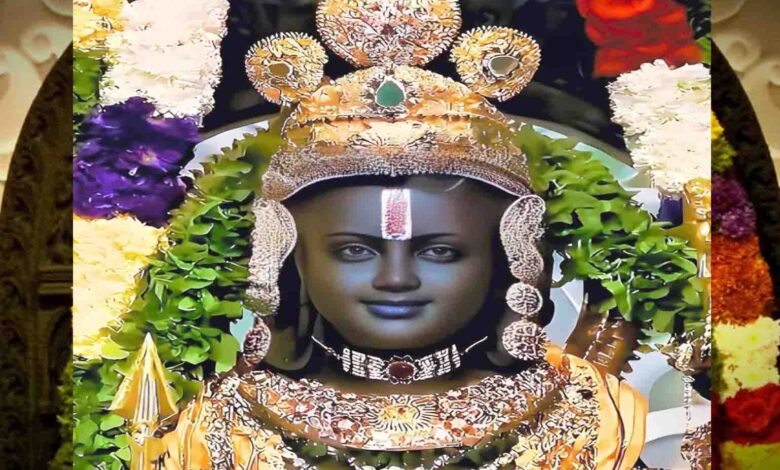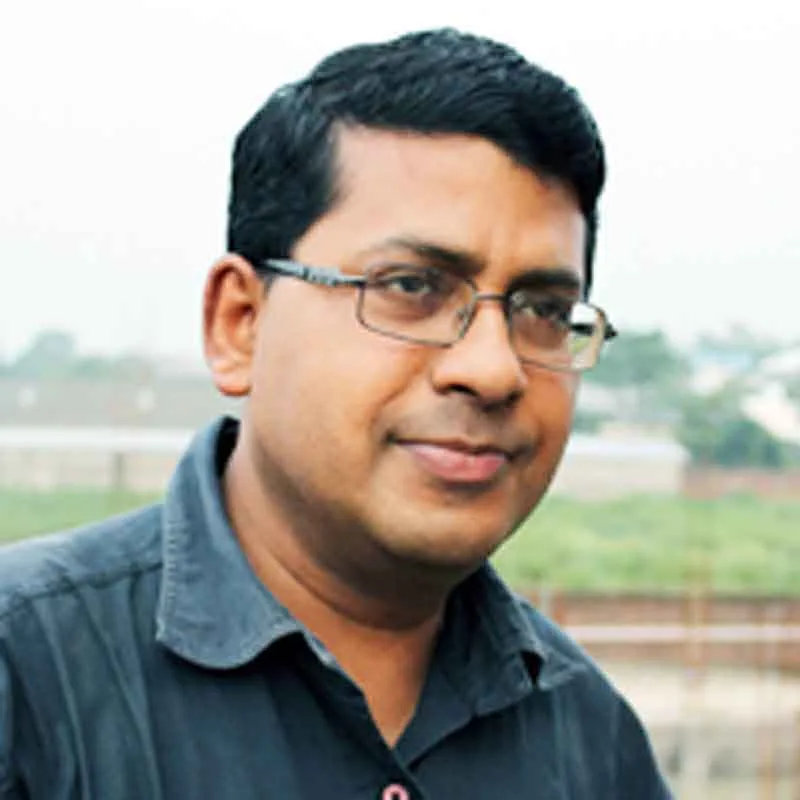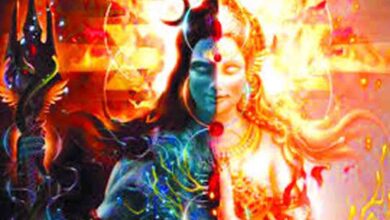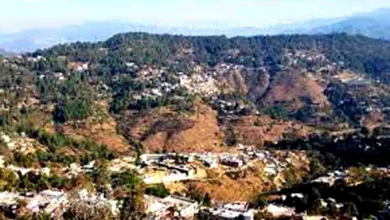VIEW POINTS: Old politics, new politics

 Romit Bagchi
Romit Bagchi
One year has passed since Ram Lalla was consecrated amidst unprecedented devotional buoyancy that swept over large parts of this ancient land. This whirlwind of spontaneous elation kindled a fond hope in many, including me, that with the long-nurtured collective yearning being finally fulfilled, India- renewed by the spiritual energy unleashed by this spectacular event- would march ahead with an invincible confidence in the direction of her spiritual destiny, leaving behind the schism-scarred past. But what unfolded afterwards is far from edifying: the noise of political triumphalism drowned the deeper call of the nation’s soul.
Way back in 1905 when the Swadeshi movement was raging across Bengal, Rabindranath Tagore warned that a movement founded on religious passions would make dust fly thick and fast all around and consequently, the luminous message of eternal Hinduism would be blown away in the dust storm. The shrill cacophony seems to be gobbling up everything, leaving little or no place for the soul to come out and reflect. Significantly, a few days before Swami Vivekananda gave up his mortal body, he warned that as long as India clung to its thirst for God she would remain alive but once politics came to rule her she would die.
While sitting in my veranda one Sunday morning, I chanced to see two processions walking down the road. One was a political procession as it was when the campaigning for the civic body election was reaching its crescendo in Dehradun. Less than half an hour later, another procession came. It was a religious procession. I observed the faces and gait of the people present in both. When I compared, I realised once again the correctness of Swamiji’s insight. The radiant faces and the vibrant gait of the children, women, men and even the elderly who were walking in the religious procession when contrasted with the gloomy, weary expression written on the faces of those who were, parrot-like, chanting political slogans helped further fortify my long-held belief. Politics is not dear to our heart as much as love for God is. While the former connotes something mechanical and superficial coming out from the outermost fringe of our psyche- far removed from the deeper springs of our soul- the latter is spontaneous as though coming straight from the deepest fount of our collective mind.
If it were so, should we cast ourselves adrift from politics altogether? The answer is a No. But if we look deep into ourselves we will not fail to see that India’s soul-not, of course, her excitement-loving surface self- yearns to go beyond politics to churn out a politics that may still be politics and yet unlike the shrill, combative, exclusive politics we are willy-nilly being subjected to. The time seems to have come when India must remould and reinvent many of the key principles and practices of politics in the light of the eternal truths of existence her soul embodies.
But what is India? Does India connote just a collective nomenclature for those inhabiting the geographical land demarcated in the map as India? Or does she epitomise an idea, a peculiar energy or power that recognisably makes her different from other races of the world-the idea that helps her perpetual survival and revival through millennia of time?
Vivekananda said, “Truth does not pay homage to the society; the society must pay homage to the Truth or perish.” What is this Truth that India holds? It is perhaps the grand Vedantic vision of Oneness-the Oneness of All, shorn of the superficial differences in colour, credo, caste, creed and country. Let me quote Swamiji again: “This vision of Oneness is the most wonderful, convincing, broadening and ennobling idea that can be found only in that most marvellous product of the soul of man-the Vedanta.”
What does this Oneness signify? It signifies that there is but one Soul-the omnipresent Soul- throughout the universe. All is but One Existence and this Oneness is the secret base, constituting and upholding the multiple manifestations. That is what the Rishis of yore concretely realised in themselves. However, not content with this realisation, they continuously experimented with this supreme Truth while applying it in the life of this land. The momentous task they were entrusted with was to rebuild individual and collective life on the bedrock of this truth of Oneness. Chaturashram, Chaturvarna, four Purusarthas and the preponderance given to Dharma in the monarchical polity were the outcome of these experiments and applications.
India’s greatness lies in the fact that she accepts the enormous diversity present in life. She believes that all the musical notes when playing together form the perfect symphony. She never seeks to suppress a note to reduce the polyphony to unison on the belief that one of the notes is the most mellifluous to which others must conform to by silent acceptance. All are allowed to play their notes fully to build the inclusive concord. While applauding the infinite assimilative capacity inherent in the Indian vision of life, Romain Rolland wrote: “A symphony is not a class of babies taught in a primary school to spell out a word all in the same tone.”
This is why India passionately clings to her pantheon of gods and goddesses along with their religious sects and rituals. Monotheism does not suit her soul. Again, this is why she accepts all religions of the world as true and conversion is an anathema to her. The genius of India views the multifaceted splendour of life as a delightful manifestation of the truth of Oneness.
Viewed from this perspective, what India’s politics should be like? Should it be intolerant and exclusive like ‘follow me or perish’? Or should it be inclusive like ‘let me follow my own and let you follow your own and all together will bring forth the perfect symphony that signifies the eternal India’?
The Oneness suffusing the many-splendoured political life may be what India has been yearning to churn out from her depths. This may be devoid of the lowly enjoyment of dramatic combativeness which the surface part of our consciousness relishes but that will doubtless gratify the inner consciousness which is connected to the soul. All should be allowed to play their notes in full and if founded on the idea of Oneness, these separative notes will not jar but just soothe.
And if this happens it will mark another consecration of Lord Ram, who is not just a religious symbol for a particular community but whose legacy is universal, extending beyond religious boundaries, resonating in all as a robust presentment of a noble and virtuous ruler of a Dharma-governed harmonious society. If we sincerely consecrate ourselves to this divine archetype He may lead India to another Renaissance, consummating in the rebirth of India as a New and Vibrant India for herself and for the world.






